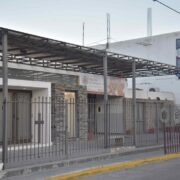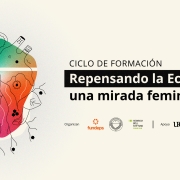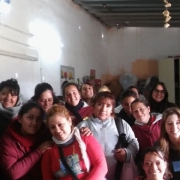Half a year of legal abortion: progress and challenges
Since its enactment at the end of last year, the IVE law is in full force and its first effects are already being verified in access to practice in health centers throughout the country. Meanwhile, in court, conservative sectors continue to try actions to postpone it.
“Below, we offer a google translate version of the original article in Spanish. This translation may not be accurate but serves as a general presentation of the article. For more accurate information, please switch to the Spanish version of the website. In addition, feel free to directly contact in English the person mentioned at the bottom of this article with regards to this topic”
The Law of Voluntary Interruption of Pregnancy No. 27,610, sanctioned at the end of 2020 and in force since January 24, 2021, implied an important deepening of human rights for women and pregnant persons.
Half a year later, access to abortion is making its way into all health subsystems across the country. In Córdoba, there are more than 100 health establishments that already guarantee this right. On May 28, International Day of Action for Women’s Health, the Ministry of Health of the Nation presented the update of the protocol for the comprehensive care of people with the right to Voluntary and Legal Interruption of Pregnancy.
The new protocol
The protocol constitutes an instrument that aims to offer guidance to health teams, providing them with a regulatory framework and clinical guidelines for precise and clear care that allows them to carry out the termination of pregnancy. Compliance with the highest standards of care is contemplated, that is, those that imply respect for quality, accessibility, confidentiality, technical competence, range of available options and updated scientific information.
From a clinical point of view, the protocol incorporates international recommendations on procedures for the legal termination of pregnancy – drug dose and manual vacuum aspiration (MVA) – and reinforces the importance of rapid access to comprehensive care, reinforcing the need resolution in the first level of care and in drug treatments.
In other words, it implies reinsurance so that girls, adolescents, women and people with the capacity to carry a child receive dignified treatment and quality care, thus guaranteeing IVE until week 14 of the gestational process inclusive and the ILE when appropriate.
As it is a document that sets out certain references on how to carry out the procedure, it is not necessary for the provinces to adhere to it in order to make the implementation of National Law 27,610 effective. In other words, the law is operative regardless of the adherence or validity of the protocol.
The judicialization here and there
In different parts of the country, legal actions were initiated that marked from the first minute a strong sense of legal insecurity for those who have the right to access the practice. There are already more than 30 actions filed against the law. Most of them have been rejected without further proceedings, but excessive judicialization creates obstacles to access and confusion among users.
In Córdoba, at the beginning of April, Aurelio García Elorrio, a reference for the civil association Portal de Belén, filed an amparo against the province requesting the unconstitutionality of the law, and in turn, requested a precautionary measure to suspend the validity of the law, the which was rejected immediately. Faced with this, he filed an appeal that is currently being processed before the Superior Court of Justice.
In this case, the Public Interest Litigation Clinic, Catholics for the Right to Decide and Fundeps present ourselves as interested third parties in order to protect the rights of the group of women and pregnant persons of Córdoba. It is important to clarify that this process does not alter the validity of the law, which continues to be applicable and enforceable throughout the provincial territory.
Meanwhile, in Mar del Plata, at the beginning of June, Federal Court No. 4 in charge of First Instance Judge Alfredo Eugenio Lopez, issued a precautionary measure suspending the effects of the law, the protocol and other resolutions.
The National State immediately appeared in the file, challenging the judge for cause and appealing the precautionary measure. Thus, the case was left in the hands of the surrogate judge, Santiago José Martín, who granted the appeal with suspensive effect of the measure. This means that the injunction granted no longer has effect until the Chamber of Mar del Plata is issued on the appeal.
Faced with this panorama and by virtue of the importance of the case, from Fundeps we present ourselves in the file as “friends of the court”, with the aim of providing human rights arguments, specifically on the right to health and sexual and reproductive rights. and non-reproductive.
It is elementary to think of Law 27,610 as a public health policy representative of fundamental human rights standards. These lawsuits are not mere isolated events, but constitute a form of activism that hinders and limits a basic health practice of sexual health. In Córdoba we already know the effects of the judicialization of the provincial guide for the care of non-punishable abortions that Portal de Belén began in 2012. This case had the consequence that women and pregnant people of Córdoba who were in qualified situations by the Penal Code to access the practice of non-punishable abortion could not do so in this jurisdiction during all the years in which the amparo was pending resolution, resulting in a serious impact on their most basic human rights, despite the fact that later it was The action was rejected due to lack of case and lack of standing.
Faced with this scenario, the competent courts in cases where the law is under discussion have the opportunity to establish clear guidelines regarding the protection of fundamental rights such as sexual and (non) reproductive rights. A solution that respects these rights is simply to maintain the validity of Law 27,610 on Access to Voluntary Interruption of Pregnancy, not giving rise to the requested precautionary measures.
Authors:
Agostina Copetti
Sofia Mongi
Contact:
Mayca Balaguer








